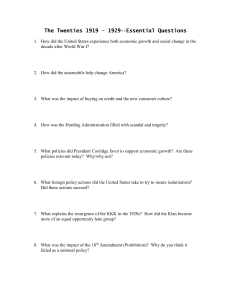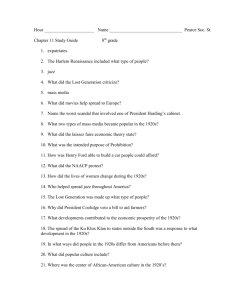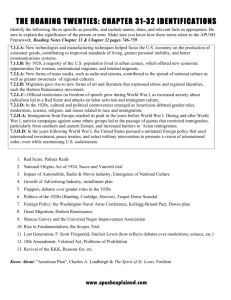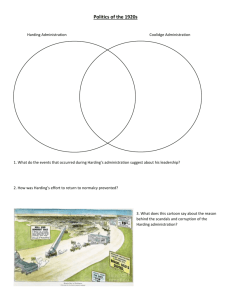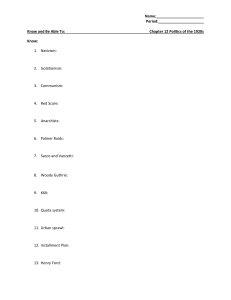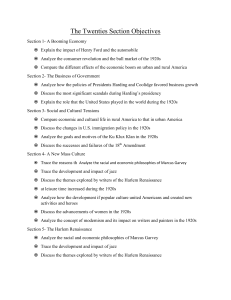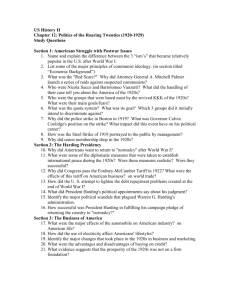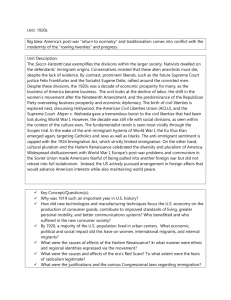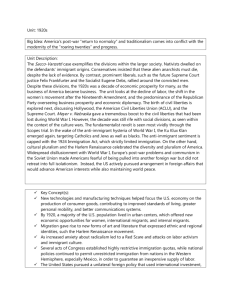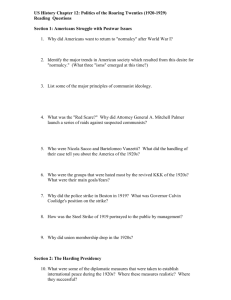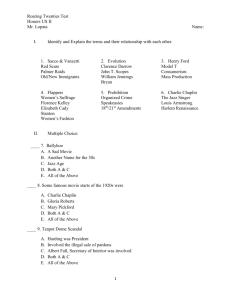contributions 1920s
advertisement
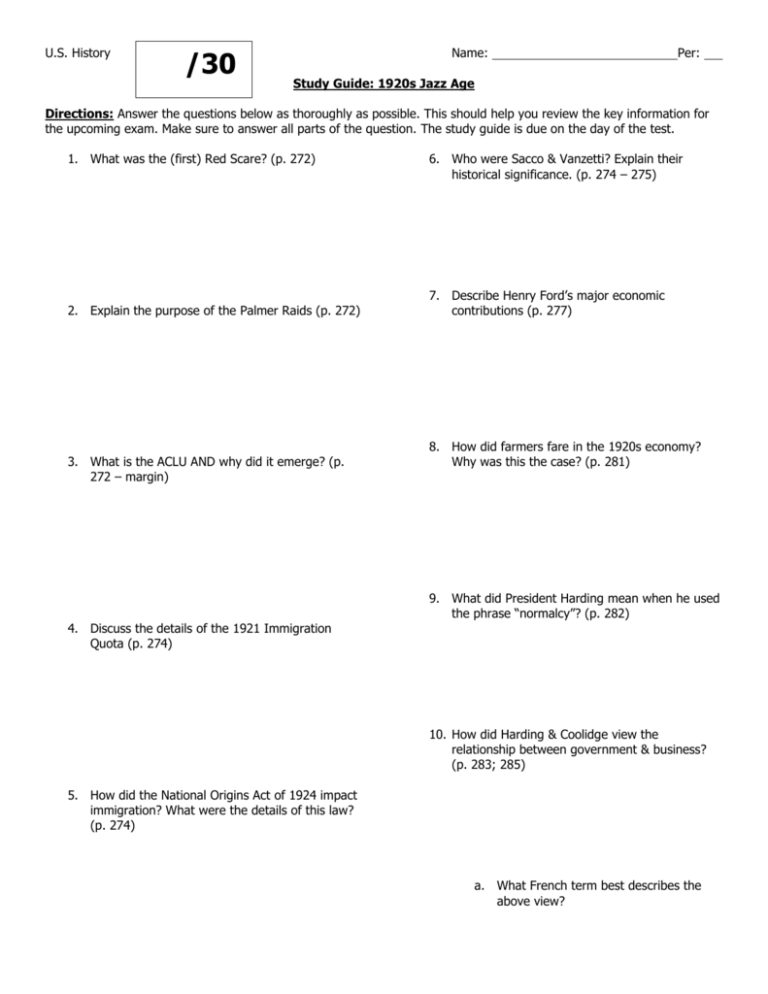
U.S. History /30 Name: Per: Study Guide: 1920s Jazz Age Directions: Answer the questions below as thoroughly as possible. This should help you review the key information for the upcoming exam. Make sure to answer all parts of the question. The study guide is due on the day of the test. 1. What was the (first) Red Scare? (p. 272) 2. Explain the purpose of the Palmer Raids (p. 272) 3. What is the ACLU AND why did it emerge? (p. 272 – margin) 4. Discuss the details of the 1921 Immigration Quota (p. 274) 6. Who were Sacco & Vanzetti? Explain their historical significance. (p. 274 – 275) 7. Describe Henry Ford’s major economic contributions (p. 277) 8. How did farmers fare in the 1920s economy? Why was this the case? (p. 281) 9. What did President Harding mean when he used the phrase “normalcy”? (p. 282) 10. How did Harding & Coolidge view the relationship between government & business? (p. 283; 285) 5. How did the National Origins Act of 1924 impact immigration? What were the details of this law? (p. 274) a. What French term best describes the above view? 11. Describe the Teapot Dome Scandal – consider what happened & the impact on Harding (p. 284) 12. What is the significance of the 19th Amendment? (p. 295) a. Review – Discuss Susan B. Anthony’s role 13. Analyze the Scopes Trial – consider the background of the case; the key figures/people; & overall significance (p. 298) 16. Discuss Marcus Garvey’s two contributions (p. 304 – 305): a. UNIA b. Back to Africa movement 17. Discuss Zora Neale Hurston & Langston Hughes’ role in the Harlem Renaissance (p. 305) 18. How did the radio contribute to a common “American” culture? (p. 309) 19. What was F. Scott Fitzgerald’s contribution to 1920s American culture & literature? (p. 312) 14. What is the significance of the 18th Amendment (p. 299) 15. What was the purpose of the Harlem Renaissance? (p. 304)
